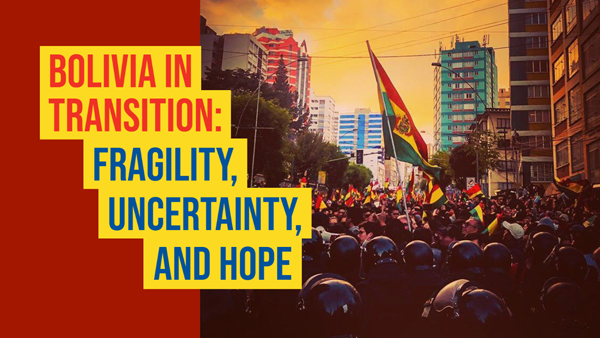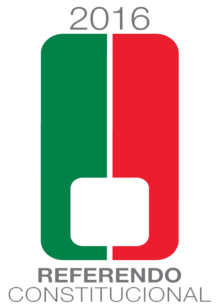 Defying Bolivia’s constitution and a binding referendum forbidding reelection, former President Evo Morales ran for a fourth consecutive term in October 2019. Documented fraud sparked nationwide protests that eventually led to Morales’s resignation and exile. This surprising turn of events offers a unique opportunity to restore democratic governance.
Defying Bolivia’s constitution and a binding referendum forbidding reelection, former President Evo Morales ran for a fourth consecutive term in October 2019. Documented fraud sparked nationwide protests that eventually led to Morales’s resignation and exile. This surprising turn of events offers a unique opportunity to restore democratic governance.
In the past months, the country has taken steps to rebuild the independence and credibility of electoral authorities, and new elections are scheduled for May 3. While encouraging, this democratic transition is still fragile, and Bolivians will likely face continued challenges as they work to reconcile deep-seated political, regional, and ethnic divisions, and advance reforms to strengthen democratic rule.
Join the National Endowment for Democracy (NED) for a discussion on the political challenges ahead, potential electoral scenarios, and the role of civil society in this unexpected transition to democracy in the hemisphere.
Thursday March 19 at 2pm.
 Raúl Peñaranda is a Bolivian journalist and political analyst. He is currently the editor of Brújula Digital (Digital Compass), a news portal. He has been a reporter, correspondent, editor, and executive editor of several newspapers, as well as a university professor, television commentator, and author of numerous books. He is the founding editor of three newspapers: Nueva Economía (1993), La Época (2001) and Página Siete (2010), currently one of the most important in the country. He was a Nieman Fellow at Harvard University and a Reagan-Fascell Democracy Fellow at NED. Peñaranda received Columbia University’s prestigious Maria Moors Cabot Prize in 2015.
Raúl Peñaranda is a Bolivian journalist and political analyst. He is currently the editor of Brújula Digital (Digital Compass), a news portal. He has been a reporter, correspondent, editor, and executive editor of several newspapers, as well as a university professor, television commentator, and author of numerous books. He is the founding editor of three newspapers: Nueva Economía (1993), La Época (2001) and Página Siete (2010), currently one of the most important in the country. He was a Nieman Fellow at Harvard University and a Reagan-Fascell Democracy Fellow at NED. Peñaranda received Columbia University’s prestigious Maria Moors Cabot Prize in 2015.
Rubén Darío Cuéllar Suárez is a lawyer specializing in international economic relations, national and local governance, and human rights. He has dedicated much of his professional career to public administration in Bolivia. He served as governor of the Department of Santa Cruz and was elected to the Constituent Assembly. Cuéllar was appointed external advisor to the president of the Bolivian Senate and has served as executive director of the Observatory for Human Rights and Justice Foundation. He currently serves as extraordinary ambassador and permanent representative of Bolivia to the United Nations.
Fabiola Córdova is the Associate Director for Latin American and Caribbean at the National Endowment for Democracy (NED). Since joining the Endowment in 2005, Córdova has worked in partnership with civil society groups across the hemisphere to advance democratic reforms, strengthen human rights standards, improve citizen and voter participation, and enhance transparency and anti-corruption efforts. She has managed programs across the region, and currently oversees NED’s initiatives in the Andes.







